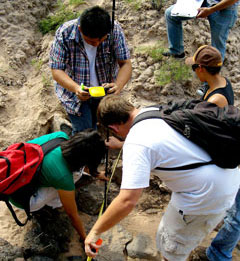|

April 2014 Partners in Progress eNewsletter
Understanding the Impact of Anchor Institutions on Low-Income Communities
As part of its decades-long work with anchors — institutions that are deeply rooted in their communities — OUP hosted a November 2013 conference on "Linking Anchor Institutions to Outcomes for Families, Children and Communities: The Community Dashboard." The conference, which was webcast for the general public, highlighted findings from a new white paper, The Anchor Dashboard: Aligning Institutional Practice to Meet Low-Income Community Needs, prepared by the Democracy Collaborative at the University of Maryland and funded by the Annie E. Casey Foundation. At the event, two of the paper’s authors, Ted Howard and Sarah McKinley, reviewed their report and discussed how to use the anchor dashboard to measure outcomes of anchor institutions’ work in vulnerable communities. Read More
Recap: Anchor Institutions Task Force 2013 Annual Conference
The 2013 annual meeting of the Anchor Institutions Task Force was held in December at Johns Hopkins University in Baltimore. The conference brought together scholars, university professionals, and other engaged practitioners to discuss the critical role that anchor institutions play in the well-being of communities across the country. Read More
|
|
|

Feature Story
Grantee Spotlight: Arid Lands Institute Plans for Water-Stressed Communities
In 2007, students from the School of Architecture at Woodbury University, a private, nonprofit university in Burbank, California, began working on solutions to water and energy issues in Western arid landscapes. The following year, Woodbury established the Arid Lands Institute (ALI), a research and outreach center in the School of Architecture that now houses classes related to drylands design.
Read More
|
|